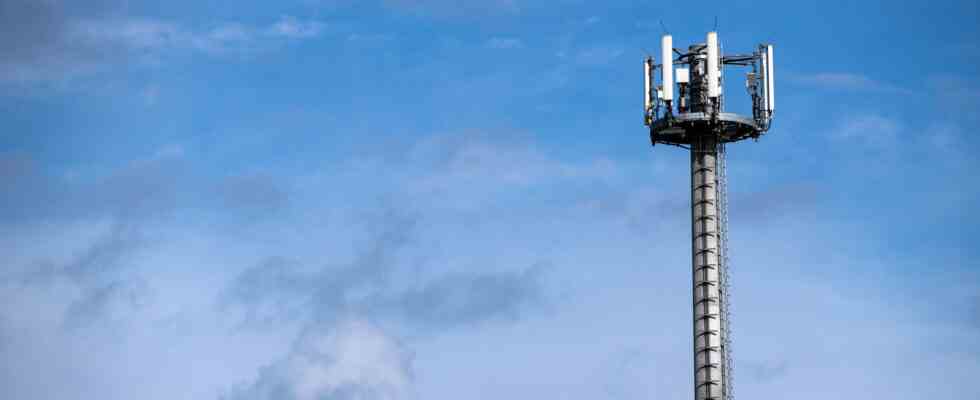Status: 23.11.2022 8:27 a.m
By the end of 2022, Deutsche Telekom, O2 and Vodafone wanted to build new radio stations in 500 “white spots” and thus finally enable reception there. They are likely to miss this target by a wide margin.
Germany’s mobile network operators are late in closing so-called “white spots”. White spots are areas where neither 4G/LTE nor 5G radio signals are received. Actually, Deutsche Telekom, Vodafone and Telefonica Deutschland had committed themselves in the 2019 frequency auction to building new radio stations in 500 previously unoccupied areas by the end of 2022. The companies wanted to give each other access, they are each responsible for a third of the white spots.
Far too few new radio stations
However, it is likely that none of the three established operators will meet this expansion requirement. This emerges from a report by the Federal Network Agency to its advisory board, which is available to the dpa news agency and is intended to serve as a basis for discussion at the advisory board meeting next Monday. After that, Telefonica Deutschland (O2) only has 45 new radio stations, Deutsche Telekom 28 and Vodafone 12.
White spots are not dead spots at all?
Strictly speaking, according to the definition of the federal authority, white spots are not dead spots at all, because at least 2G telephony signals can be received there. In the data-driven Internet age, however, many Germans are likely to perceive white spots as a dead zone.
According to information on the broadband-monitor.de website, there were real dead spots in October on just 0.32 percent of Germany’s area – not even 2G can be received there. On the other hand, there were white spots on 2.94 percent of the area. In addition, there is an area of 18.6 percent with “grey spots” where only one or two of the three network operators are transmitting.
Faster download speeds for everyone
In addition to the specification for the white spots, the 2019 auction conditions include the obligation to cover at least 98 percent of households in every federal state with a download speed of at least 100 megabits per second by the end of 2022. “Telekom has so far fulfilled the requirement in twelve federal states, Telefonica in five and Vodafone in 13 federal states,” write the representatives of the authority, referring to reports from the companies that were received in Bonn by the beginning of November.
The companies nonetheless expressed confidence that they would be able to meet the Network Agency’s requirements by the end of the year. However, things are different when it comes to the white spots – Telefonica Germany, Vodafone and Telekom should break the bar here.
Fines or warnings?
In the letter from the Federal Network Agency, the authority is now asking the network operators to submit detailed documentation for each delayed location. “This should enable an examination to determine whether the delays are caused by the respective mobile network operator or third parties.”
The authority also referred to the possibility of fines. It is questionable whether she would really pull out this sharp sword: Even with O2’s clear misconduct after the 2015 auction, the authority left it at warnings.

